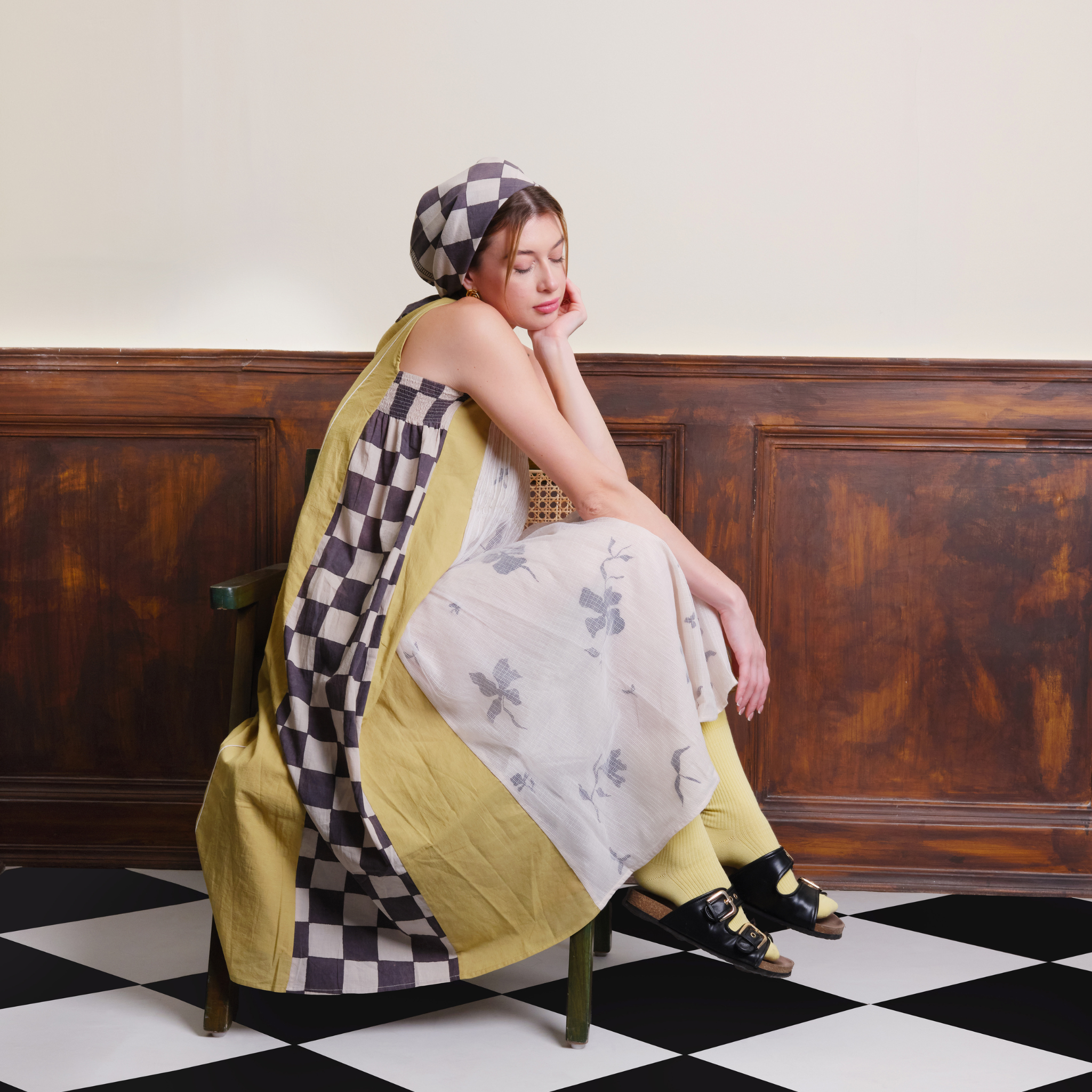What does a fashion revolution mean to you?
Kanchan: The fashion industry has played a major role in impacting the environment. In the world of fashion, everyone has done their part – they’ve shown the different meanings and definitions of sustainability and slow fashion. We have too. We recycle and make different things from scraps as well as waste material. However, an important part of what a fashion revolution means to me is showcasing Indian heritage and supporting different artisans by being personally involved in each part of the process. Whenever I create a collection, I personally involve myself by connecting deeply with the inspiration of every collection, working with organic fabrics, supporting women and karigars, and amalgamating modern and Indian sensibilities together. This makes a big difference for us, and being able to now have an international presence is a milestone for us. We only aim to go upward and impact more lives through our work.
What is a challenge that you see conscious fashion brands are likely to experience over the next decade?
Kanchan: People have attached sustainability with restrictions too. Nearly everyone requires certifications that are expensive and processes that are long, and are not clearly marked or very straightforward. We ourselves have had to change our terminologies and how we speak about a fabric because they are patented. An example of this is khadi.
Manish: For small businesses that are actually sustainable and committed to doing more, this presents quite an issue right now, as this is not a one off case for when you are establishing your brand’s name and its credibility. Whenever you want to apply for B2B or competitions, certifications have become a preliminary requirement. Each country has their own certifications, and they don’t always connect across the world as there aren’t always standardized guidelines. We think this is a large challenge that we expect conscious businesses will continue to face in the coming years and will have to find ways to overcome.
How has the last year been for Ahmev as a brand?
Kanchan: We started Ahmev in 2019, and I was never a dreamer. Manish pushed me to pursue my dreams and showed me what I can do, and having worked on them consistently, we are glad that the last year has been a very successful one for us. I have enjoyed the process – working with the karigars and my business partners Manish and Anchal. Our karigars are growing, and with them, our brand. We’ve been partaking in the making of each garment ourselves, and being involved in the small everyday practices has been so therapeutic. That’s really been the beauty of our enterprise being a start up.
The color white has been so important to you and to your brand Ahmev. How has your relationship with the color developed in these years, and how do you feel about adding other colors to your collections?
Kanchan: I still face the issue of people asking me to make the same design in a different color. Even Manish used to suggest that we should make our garments in other colors if there is a demand for it. But people have come to accept it, and so has our team, as this is our brand’s USP. I have never used color, and I have even been afraid of them. Over time, I have been coming to understand color a little more and really worked on it with this new collection. But white is still our trademark, and we want to see that forward.
We’d love to know of some of the new things you’ve been doing at Ahmev
Kanchan: We’ve been doing more capsule collections as our customers enjoy them a lot. We’ve also been experimenting with menswear and doing trials on Manish!
Manish: I too have been exploring myself more through this, and hand painting some of our clothes with Anchal and Kanchan. In fact, I think I’m now becoming quicker at it than them!
CREDITS
Interviewer and Writer MALINI MATHUR
Layout and Graphic Design VEDHIKA HV
Images by KANCHAN SHARMA (AHMEV)
Editor RHEA GUPTE
IKKIVI Zine is a property of IKKIVI by Founder NIVI MURTHY









